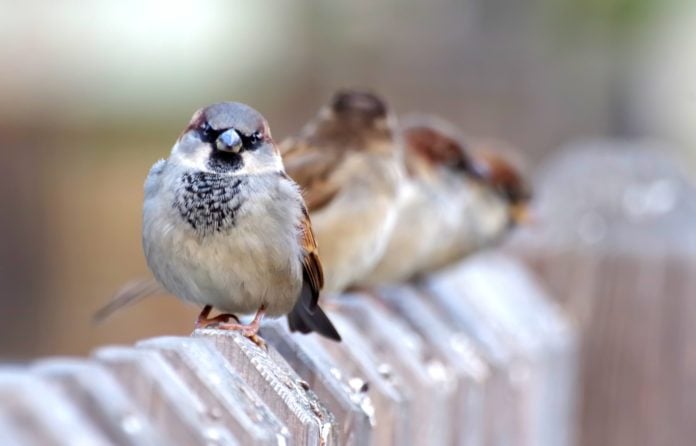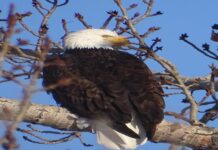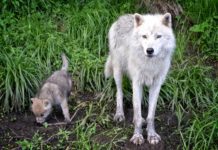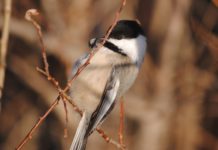by JG Turner
The House Sparrow is a member of the Old World sparrow family native to most of Europe and Asia. This little bird has followed humans all over the world and has been introduced to every continent except Antarctica. In North America, the birds were intentionally introduced to the United States from Britain in the 1850s as they were thought to be able to help with insect control in agricultural crops. Being a hardy and adaptable little bird, the House Sparrow has spread across the continent to become one of North America’s most common birds. However, in many places, the House Sparrow is considered to be an invasive species that competes with and has contributed to the decline in certain native bird species.
Fun Facts:
- The House Sparrow is part of the weaver finch family of birds which is not related to North America’s native sparrows.
- The males have a grey crown and underparts, white cheeks, a black throat bib and black between the bill and eyes. Females are brown with a streaked back (buff, black and brown).
- These little birds have only been in Alberta for about 100 years and have made themselves at home here by taking advantage of urban human environments, where food and home sites are provided.
- In Alberta, House Sparrows can be found in backyards, parks, suburban and cultivated fields, and urban areas. They are rarely found in far northern areas.
- House Sparrow make untidy nests in boxes (sometimes taking over another bird’s nest), under eaves, in crevasses in buildings or masonry or stone structures, in spruce trees, and, in cold climates, even in the heat vent outlets of commercial laundries. These birds may raise up to three broods a season.
- These birds usually travel, feed and roost in assertive, noisy, sociable groups, but always maintain wariness around humans.
- Although often disliked for their raucous and unsanitary manners, the House Sparrow provides great fodder for the study of bird behaviours in general because they are so commonly found in areas populated by humans.
If you find an injured or orphaned House Sparrow or other wild bird or animal, please contact the Calgary Wildlife Rehabilitation Society at 403-214-1312 for tips, instructions and advice, or visit our website at www.calgarywildlife.org for more information.









